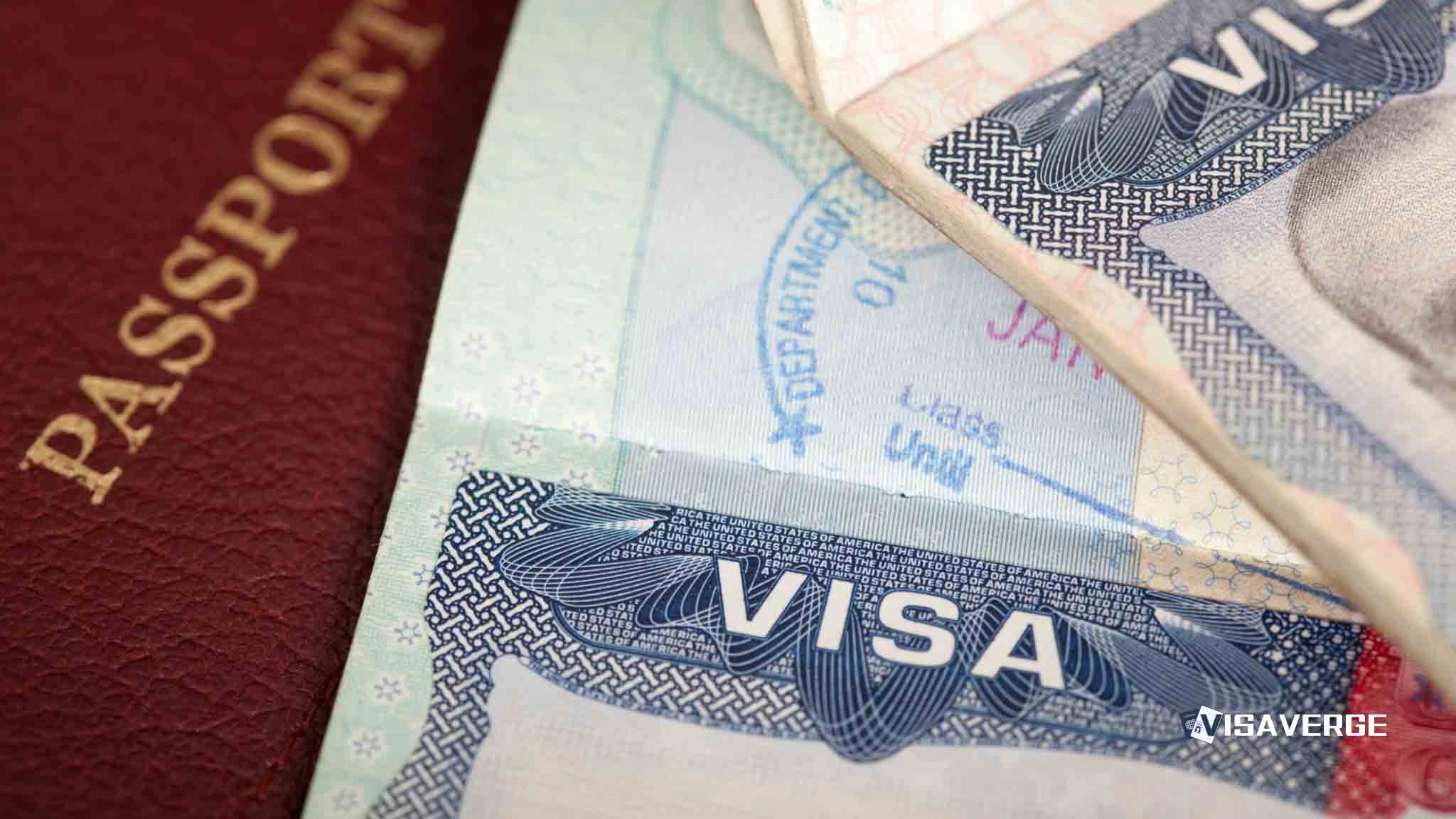Key Takeaways
• Melania Trump’s EB-1 visa approval in 2001 sparked debate over eligibility and fairness in U.S. immigration.
• A 2025 petition requesting her deportation gathered over 3,300 signatures citing alleged double standards.
• EB-1 “Einstein Visa” requires extraordinary ability proofs like awards, high salary, and major contributions.
The ongoing debate about Melania Trump’s immigration status, especially her path to U.S. citizenship through the so-called “Einstein Visa,” has once again become a hot topic in the United States 🇺🇸. As of July 3, 2025, this issue is not just about one person’s journey but has grown into a larger conversation about how immigration laws are applied, who gets special treatment, and what fairness really means in the American immigration system. The controversy has even led to a petition calling for Melania Trump’s deportation, sparking strong reactions from politicians, experts, and the public.
Why Is Melania Trump’s Immigration Story in the Spotlight?

Melania Trump, the former First Lady of the United States 🇺🇸, is at the center of a renewed debate over immigration rules and fairness. The main question is whether she received special treatment when she was approved for an EB-1 visa, often called the “Einstein Visa.” This visa is usually given to people with “extraordinary ability” in their field, such as top scientists, artists, or athletes. Critics argue that Melania Trump’s background as a model did not meet the high standards usually required for this visa.
The issue gained new attention in early July 2025, when a petition demanding Melania Trump’s deportation gathered over 3,300 signatures. Supporters of the petition say that if the strict immigration policies promoted by President Trump were applied equally, Melania Trump’s own path to citizenship would come under question.
What Is the EB-1 “Einstein Visa”?
The EB-1 visa is a special type of green card for people who can show they have “extraordinary ability” in their field. This means they must have a record of major achievements, such as winning big awards, being featured in important publications, or making significant contributions to their profession. The EB-1 is sometimes called the “Einstein Visa” because it is meant for people who have reached the very top of their field.
To qualify for an EB-1 visa, applicants must provide strong evidence, such as:
- Awards or prizes for excellence in their field
- Membership in associations that require outstanding achievement
- Published material about them in major media
- Original contributions of major significance
- High salary compared to others in their field
You can find the official requirements for the EB-1 visa on the USCIS EB-1 page.
Melania Trump’s Immigration Timeline
Understanding Melania Trump’s journey helps explain why her case is so controversial. Here’s a simple breakdown of her path:
- 1996: Melania Trump arrived in the United States 🇺🇸 on a tourist visa.
- Late 1990s: She switched to an H-1B visa, which allowed her to work legally as a model.
- 2001: Melania was approved for an EB-1 visa, granting her permanent residency.
- 2006: She became a naturalized U.S. citizen.
- After 2006: Melania sponsored her parents for green cards, using her status as a U.S. citizen.
Each step in this process is legal, but critics have raised questions about whether Melania Trump met all the requirements, especially for the EB-1 visa.
Why Are People Calling for Melania Trump’s Deportation?
The call for Melania Trump’s deportation is not just about her personally. It’s part of a larger debate about how immigration laws are enforced in the United States 🇺🇸. President Trump’s administration was known for its tough stance on immigration, including strict rules for people who overstay visas or use family connections to get green cards. Some people believe that Melania Trump’s path to citizenship would not have been possible under the same rules her husband promoted.
Key reasons behind the deportation petition:
- Perceived Double Standard: Critics say it’s unfair for President Trump to push for strict immigration laws while his own wife may have benefited from a more flexible system.
- Questions About Eligibility: Some experts and politicians argue that Melania Trump’s modeling career did not meet the “extraordinary ability” standard required for the EB-1 visa.
- Broader Policy Debate: The controversy highlights the challenges of applying immigration laws fairly, especially when high-profile individuals are involved.
What Have Politicians Said About the Case?
Several politicians have spoken out about Melania Trump’s immigration story, using it to highlight what they see as problems with the current system.
- Congresswoman Maxine Waters: In early 2025, she called for President Trump to review Melania’s immigration records, saying it would show whether the rules are applied equally to everyone.
- Jasmine Crockett: She recently criticized the Trump administration for what she described as hypocrisy, pointing out that Melania’s EB-1 visa approval seemed unusual compared to the strict standards applied to others.
These comments have fueled the debate and brought more attention to the issue.
How Does the EB-1 Visa Usually Work?
The EB-1 visa is not easy to get. It’s designed for people who are at the very top of their field. While you don’t have to be a Nobel Prize winner, you do need to show that you have received national or international recognition for your work.
Typical EB-1 recipients include:
- Scientists with groundbreaking research
- Olympic athletes
- Award-winning actors or musicians
- Top business leaders
Melania Trump’s approval for this visa as a model has raised eyebrows because, while she had a successful career, she did not have the kind of major awards or global recognition that most EB-1 recipients have.
Expert opinion: Susan McFadden, an immigration expert, explains that while the EB-1 is a prestigious visa, it does not require you to be a household name. Many recipients are not famous but have strong evidence of their achievements. Still, the bar is high, and each case is supposed to be judged carefully.
Did Melania Trump Break Any Immigration Laws?
There have been questions about whether Melania Trump followed all immigration rules during her early years in the United States 🇺🇸. Some reports suggest she may have worked as a model before getting her H-1B work visa, which would have been against the law. However, no official evidence has been released to prove this, and Melania Trump has always said she followed all the rules.
Once she became a U.S. citizen in 2006, Melania Trump gained the right to sponsor her parents for green cards. This is a common process for U.S. citizens, and there is no evidence that she broke any laws during this step.
Why Does This Matter for U.S. Immigration Policy?
The debate over Melania Trump’s immigration status is about more than just one person. It raises important questions about how immigration laws are written and enforced in the United States 🇺🇸. Here are some of the bigger issues at play:
- Consistency: Are the rules applied the same way to everyone, or do famous people get special treatment?
- Fairness: Is it fair to criticize others for using family connections or flexible visa rules if you have benefited from the same system?
- Transparency: Should the government be more open about how it decides who gets special visas like the EB-1?
As reported by VisaVerge.com, these questions are at the heart of the current debate and will likely shape future immigration policy discussions.
What Are the Practical Effects of This Controversy?
The focus on Melania Trump’s immigration story has several practical effects:
- Public Awareness: More people are learning about the different types of visas and how the system works.
- Policy Pressure: Lawmakers may feel pressure to review or change the rules for special visas like the EB-1.
- Personal Impact: High-profile cases like this can affect how immigrants are treated and how the public views the immigration system.
What Does the Law Say About Deportation for Naturalized Citizens?
Once someone becomes a naturalized U.S. citizen, it is very difficult to deport them. The law only allows deportation in rare cases, such as if the person lied or hid important facts during the citizenship process. There is no public evidence that Melania Trump did this.
Key points about deportation of naturalized citizens:
- Fraud or Misrepresentation: If someone lied on their application, their citizenship can be taken away, and they can be deported.
- Criminal Activity: Serious crimes can also lead to loss of citizenship, but this is rare.
- Normal Process: Most naturalized citizens are safe from deportation unless there is clear proof of wrongdoing.
For more details on the rules about naturalization and deportation, visit the USCIS Citizenship page.
How Do These Issues Affect Other Immigrants?
The Melania Trump case is important because it shows how complicated and sometimes confusing the U.S. immigration system can be. Many immigrants worry that the rules are not always clear or fair. When high-profile cases get special attention, it can make others feel like the system is stacked against them.
Impacts on different groups:
- Immigrants: May feel discouraged if they believe the rules are not applied equally.
- Employers: Need to understand the visa process to avoid mistakes when hiring foreign workers.
- Families: Worry about how changes in the law could affect their ability to stay together.
What Can We Learn from the Melania Trump Case?
This case teaches several important lessons about immigration in the United States 🇺🇸:
- No One Is Above the Law: Even famous people must follow the same rules as everyone else.
- Transparency Matters: The government should explain how it makes decisions about special visas.
- Policy Should Be Fair: Laws should be applied equally, no matter who you are.
What Should Immigrants and the Public Do Next?
If you are an immigrant or someone interested in U.S. immigration policy, here are some practical steps you can take:
- Stay Informed: Follow official sources like the USCIS website for the latest news and rules.
- Know Your Rights: Understand the requirements for visas and citizenship, and keep records of your status.
- Ask Questions: If you have doubts about your case, talk to a qualified immigration lawyer.
Looking Ahead: The Future of Immigration Policy
The debate over Melania Trump’s “Einstein Visa” and the calls for her deportation are likely to continue as the United States 🇺🇸 reviews its immigration policies. Lawmakers may look for ways to make the system more fair and transparent, especially for special visas like the EB-1. As public interest grows, more people will demand answers about how these decisions are made.
Cases like Melania Trump’s remind us that immigration is not just about paperwork and rules—it’s about real people and their dreams. The challenge for the United States 🇺🇸 is to create a system that is fair, clear, and open to everyone who wants to build a better life.
Takeaway: The Melania Trump “Einstein Visa” controversy is more than a personal story—it’s a window into the strengths and weaknesses of the U.S. immigration system. By learning from this case, the country can work toward a system that treats everyone with fairness and respect.
Learn Today
EB-1 Visa → A U.S. green card category for individuals demonstrating extraordinary ability or achievements in their field.
Einstein Visa → Nickname for the EB-1 visa, symbolizing recognition given to top-level experts and extraordinary achievers.
H-1B Visa → A U.S. visa allowing foreigners to work temporarily in specialty occupations requiring a bachelor’s degree or higher.
Naturalized Citizen → A foreign-born person who lawfully became a U.S. citizen after fulfilling legal immigrant requirements.
Deportation → The legal process of removing a non-citizen from the United States for violating immigration laws.
This Article in a Nutshell
Melania Trump’s EB-1 visa has reignited U.S. immigration fairness debates. Critics question her eligibility and call for deportation. This controversy exposes challenges in applying laws equally and intensifies calls for transparent visa policies in America’s complex immigration system.
— By VisaVerge.com














Wow, a whole 3,300 signatures? What a sad joke that is. Yet another article by haters for haters. BTW Melania Trump is the CURRENT First Lady of the United States. Great job updating the article. Not.
Oh and she easily qualified for an EB-1 visa on income alone. Try doing a little work and looking into the various folks who have gotten them to compare. You’ll quickly see there is no controversy other than the relentless desire of the haters to try to fabricate one.